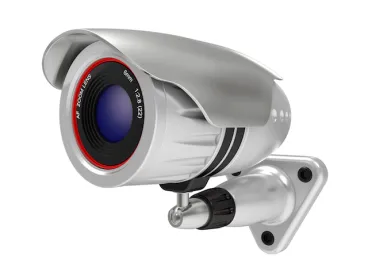Last week, the Court of Justice of the European Union (CJEU) ruled that owners of home surveillance cameras could be breaching the EU Data Protection Directive 95/46/EU (the Directive), when those cameras are used to monitor public spaces. The ruling was made following a request from the Nejvyšší správní soud (The Supreme Administrative Court of the Czech Republic) for interpretive guidance.
According to the facts, Mr Ryneš, from the Czech Republic, had set up a camera to monitor the footpath outside of his home in response to a series of break-ins that he and his family had suffered. One of the suspects of a break-in was subsequently caught on camera, and the video recording was used as evidence in the criminal proceedings that followed. However, the suspect separately made a complaint to the Czech Data Protection Office that the surveillance system used by Mr Ryneš was unlawful. The Czech Data Protection Office agreed. Mr Ryneš then brought an action challenging that decision, which was appealed to the Czech Supreme Court.
On reviewing the merits of the case, the Czech Supreme Court sent a question to the CJEU. It asked the CJEU to interpret whether Mr Ryneš’s use of a video camera to protect his property and his family’s safety could be considered to fall within an exception contained in Article 3(2) of the Directive for processing activities “in the course of a purely personal or household activity.” Alternatively, the Czech Supreme Court wanted to know whether the “personal or household activity” exemption did not apply, because Mr Ryneš’s camera was filming the footpath outside of his home, which is a public space.
The CJEU found that the image of an identifiable person captured on camera is “personal data” under the Directive. Mr Ryneš’s video-recording activity was considered to constitute the processing of personal data by automatic means. After establishing these basic principles, the CJEU decided that Mr Ryneš’s recording of a public space from his home was not conducted in a “purely personal or household setting”. The court found that the notion of a “purely personal setting” must be interpreted strictly and narrowly, because the EU’s Charter of Fundamental Rights, as well as the Directive itself, guarantee that individuals’ rights of privacy will be strongly protected.
The interpretive guidance of the CJEU means that the Czech Supreme Court will now have to decide whether Mr Ryneš’s recording of a public space can be justified using one of the legitimate grounds for processing set out in the Directive — in particular, the interest he has in protecting the property, health and life of his family and himself. However, the Czech Supreme Court could find that Mr Ryneš’s failure to follow the other requirements under the Directive when recording people in a public space — such as informing the people being recorded — means that he breached the Directive. A ruling like this could have implications for other individuals in the EU who use video cameras outside of the home context. One example is people who use video cameras on their car dashboards for the purpose of using recordings as evidence in case of a traffic incident.
This post was written with contributions from Fredericka Argent.



 />i
/>i

